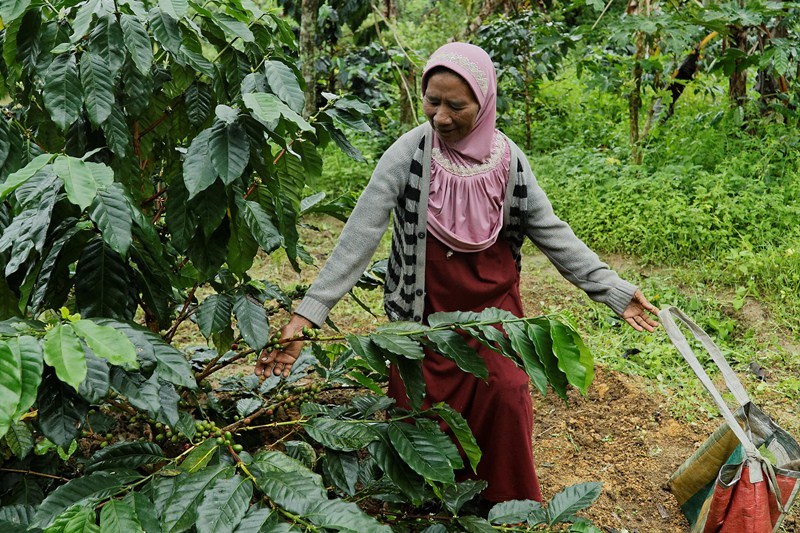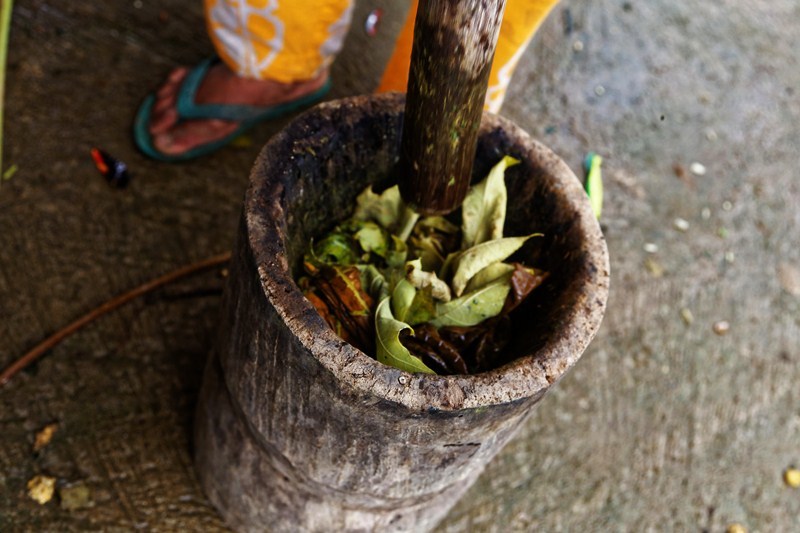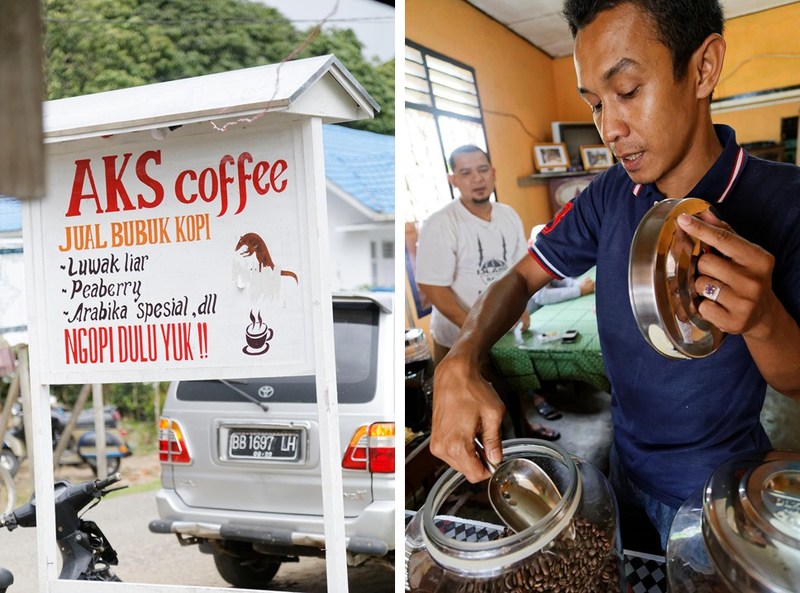Sholi Pohan is passionate about coffee. As a wholesale trader of coffee beans and as an expert employed by Conservation International to design and lead training programs for coffee farmers, he is intensely proud of the coffee produced in the region of his birth. At the same time, he is obsessed by a belief that it has not yet achieved its full potential, nor has its unique qualities been widely recognized by the high-end coffee market. He is doing everything he can to change that.

Sholi is a native of Sipirok, the district capital of South Tapanuli, a hilly, densely-forested district located to the South of Lake Toba. A large portion of the district is covered by national parks that are home to the critically endangered Sumatran tiger and the Tapanuli orangutan, found nowhere else in the world. In the highlands, farmers grow Mandheling Ankola Sipirok coffee, known locally as Sipirok coffee. Sholi’s day job involves designing programs that promote the use of environmentally friendly coffee farming techniques that produce higher quality coffee on smaller plots of land, involving the intercropping coffee with other fruits and vegetables, the planting of shade trees, the importance of controlling erosion, and the use of home-made organic compost and insecticide, all of which have environmental benefits, as well as improving the quality of the coffee itself.
These innovative cultivation techniques are mostly highly labor-intensive, rather than land-intensive. If farmers use these labor-intensive techniques to produce high-grade coffee, they can produce much higher yields from much smaller parcels of land. With farming land bordering the national parks, the promotion of these environmentally friendly techniques reduces encroachment by providing farmers with means of generating higher incomes. There is only so much land available for farming, and the idea is to keep farmers out of the national parks that provide the natural habitat of orangutan, tigers, and other rare animals and plant life.
While many farmers have adopted the techniques, resulting in the production of much better coffee, Sholi isn’t satisfied yet. He says it’s only when farmers’ efforts are more widely recognized by consumers will they reap the full benefits. He says: “Consumers aren’t just buying the coffee, they are buying the story. We want a consumers who drink a cup of Sipirok coffee to think of the wild rain forests and feel that they are helping to protect. They are prepared to pay a premium for that.”


To build the brand and tell the story, Sholi has set up the Angkola Kopi Sipirok coffee shop in his village in some spare space attached to family-run coffee exporting business. The place is unadorned, with rough benches upon which to sit and basic tables on which to lean. However, it is equipped with a high-quality coffee roaster and grinder and is staffed by two local lads, both of whom Sholi sponsored to attend coffee tasting certification courses in Medan. The coffee shop offers no less than seven types of local, premium coffee. It isn’t really a money-making venture. In fact, you can sit down and drink as many cups of coffee as you want, as many different types, free of charge.
In fact, at the moment, most of the people sitting down to drink their coffee are these local farmers. Sholi encourages farmers to use the shop as a networking center, to come and talk about coffee, to exchange tips about how to grow it, to exchange information about the market. He wants them to be part of the story, to be actively engaged in the process of telling it.

Mursal Sutami Lubis is one of a small group of farmers gathered in the shop around a long bench, fingering green beans and talking about their crops. Before him is a glass filled with black, unsweetened coffee. Sipping it, he leans back appreciatively and says: “Lemon, with a hint of palm sugar!” He then sips from another glass and says “This one has the aroma of chocolate!” Mursal admits that until he started coming to the shop, he really had no idea what people were talking about when they talked about high-quality, premium coffee. If the dealers told him his crop wasn’t up to par, he couldn’t really argue. But if farmers are to be involved in telling the story, they need to know how the story runs. They need to know exactly what it is that consumers value.
Around the table, talk turns to a story of tiger that was recently caught in a pig trap. Stuck there for days, its leg had turned gangrenous and had had to be amputated. The farmers were genuinely sad. It was a healthy female tiger, of breeding age. There are only about fifty left. More than anyone else, the farmers are aware that the environment they live in is under stress. They are aware of the declines in the quality of the water, the degradation of the forest in the areas in which they live. They do want to ensure that the forest resources they depend upon continue to provide benefits for future generations.
But they also want to put food on their tables for their families. If they can get more money by growing coffee in a manner that enables the forests around them to remain healthy, they will be delighted. And so will the orangutan and the tigers who live there.







